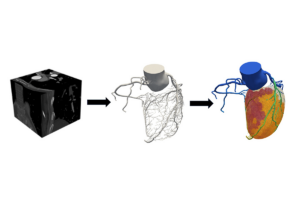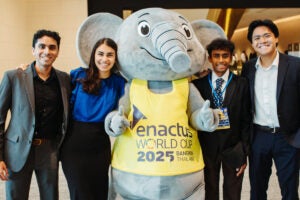AUSTIN, Texas — Internal job candidates have an advantage over external candidates, because they tend to work harder shortly before a hiring decision, according to new research from The University of Texas at Austin. This is true even when an internal candidate’s skills are inferior.
Eric Chan, assistant professor of accounting at the McCombs School of Business, found that when a new job is on the line, employees will exert more effort to increase their chances of promotion — especially right before the decision. And managers are more likely to promote them than to hire external candidates with higher skills.
An employee who rises through the ranks this way continues to exert more effort even after being promoted — even without short-term economic benefit — simply to thank the manager for the opportunity, Chan said. The study is published in the May issue of the Journal of Accounting Research.
Chan collaborated with Jeremy Lill of the University of Kansas and Victor Maas of the University of Amsterdam to recruit business school students to play the parts of managers and employees for six periods: three before and three after a hiring decision.
For every period, employees chose what level of extra effort to put in, but raising their efforts more than 20% would cost them points — which translated into real money at the end of the experiment. Managers benefitted from any level of their employees’ extra efforts.
After three periods, the manager decided whether to promote or hire from outside. The study found a strong correlation between effort and promotion:
• Overall employee efforts increased up to 51%, peaking right before a hiring decision.
• Managers promoted employees internally 54% of the time.
• Average effort was 18% higher for employees who got promoted.
• Even after a promotion decision was made, employees’ effort levels declined only 8%.
• When the researchers introduced statistical noise to make employees’ effort levels harder to pinpoint, managers were still 26% more likely to hire internally.
“Managers see employees’ past effort as a gift that should be reciprocated,” Chan said.
Read the Big Ideas story here.




